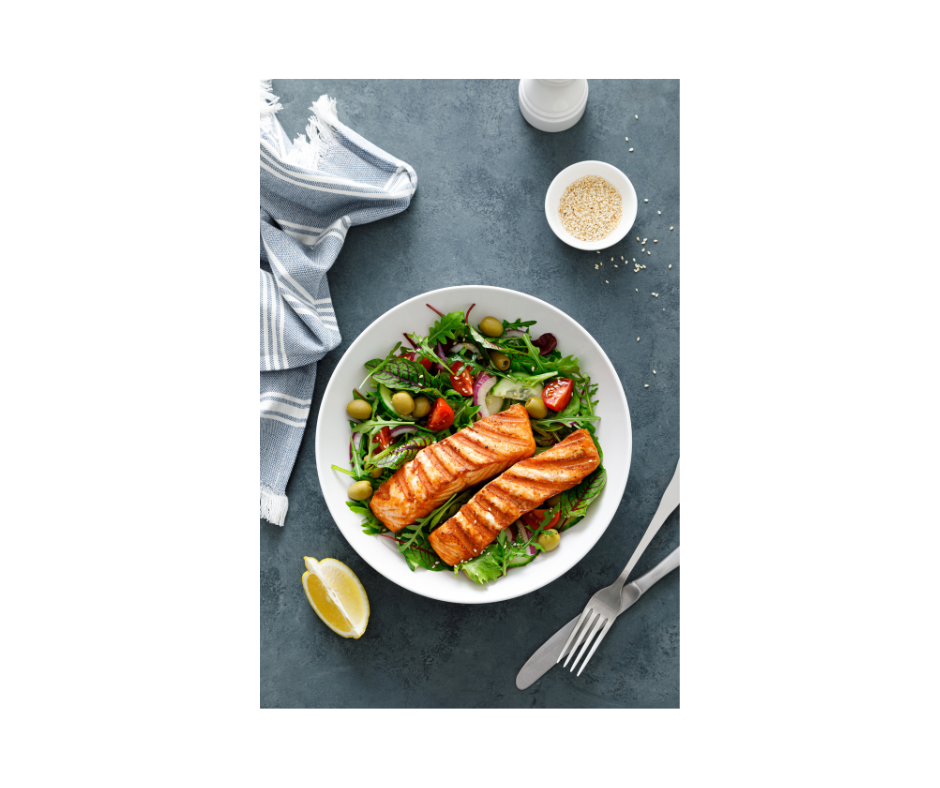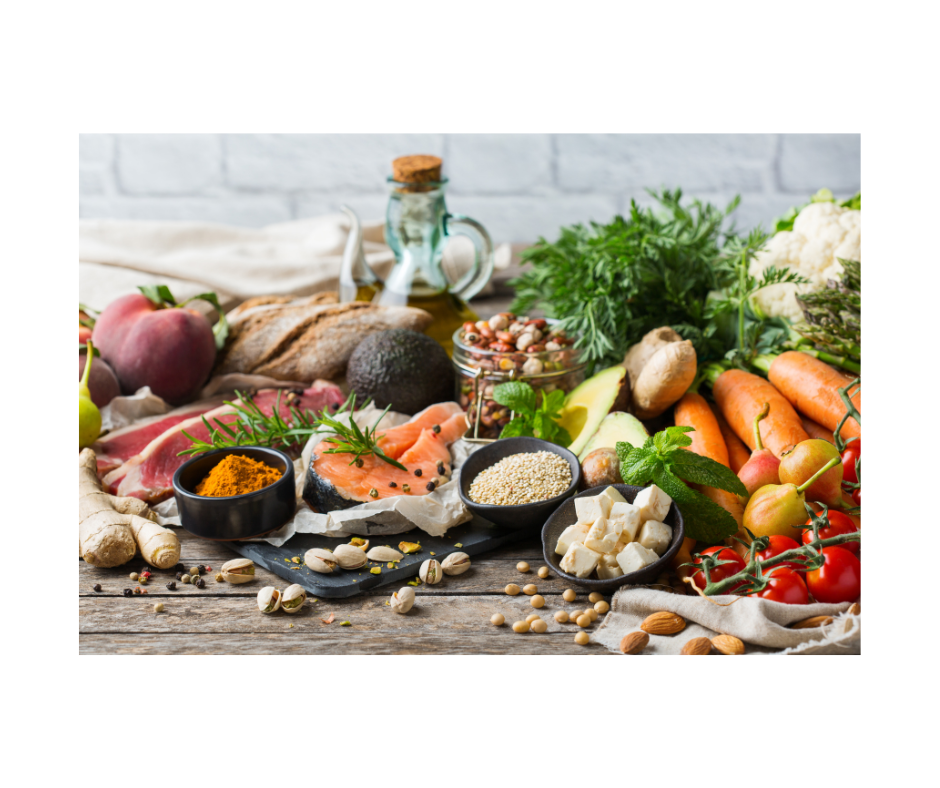Your body is constructed out of the things you eat and drink, and some might even say how you think and believe. What if we were to take a pause before cooking our meals or taking a bite of food and ask ourselves, “Is this adding nourishment to my body and mind?” Or, “Am I about to add empty calories to my body or even calories that hurt the cells of my body?” Just those simple questions can have a powerful outcome.
We Are What We Eat
So, let’s break it down for a minute. The food we eat, simply, is what powers our body, heals our body, energizes our body, and has the power to bring people together. Food can also: cause inflammation, increase blood glucose to dangerous levels, leach our body of nutrients, and can actually result malnutrition if consuming nutrient-less calories.
In the realm of nutrition, the age-old adage “food is fuel” encapsulates a fundamental truth – what we consume directly influences our body’s performance. Embracing this notion, it becomes imperative to delve beyond mere calorie counting and decipher the nutritional value of our choices. While indulging in a bag of chips or satisfying a sweet tooth can be momentarily gratifying, it is essential to recognize the distinction between fueling our bodies with nutrient-rich options versus empty calories.
Opinions
Social media has made “eating healthy” a mystery! “Vegetables are bad because they produce self-defense chemicals that aren’t good for us!” The carnivore diet is what is best!” “Going vegan is the only path to optimal health and longevity.” “Gluten free is the only way to eat!” What does one choose?! We are bombarded by biohackers telling us what is best for us. RED FLAG! The only person qualified to know what is best for you is YOURSELF.
The Basics
To navigate this culinary terrain effectively, cultivating a basic understanding of nutritional content is key. Opting for whole, unprocessed foods – laden with vitamins, minerals, and essential macronutrients – can fortify our physical well-being, providing sustained energy and supporting overall health. Conversely, consistently choosing foods high in refined sugars, saturated fats, and additives (which, would be many boxed or processed foods) can contribute to adverse health effects over time. Striking a balance between enjoyment and nourishment is the crux of mindful eating, ensuring that the fuel we provide our bodies is not only plentiful in nutrients but also satiating.

Sometimes, we don’t have a choice and must do the best that we can. Having just a bit of knowledge in regards to macro and micronutrients can truly help you be empowered to make the best decisions for yourself at mealtimes. Macronutrients refer to the three major nutrient groups that provide the bulk of energy: carbohydrates, proteins, and fats. Micronutrients encompass vitamins and minerals, which are required in smaller amounts but are equally vital for various physiological functions. Vitamins contribute to processes like immune function and metabolism, while minerals such as calcium, iron, and zinc are essential for bone health, oxygen transport, and enzyme function.
Nutrient-rich foods, such as fruits, vegetables, lean proteins, and some legumes and grains, provide essential vitamins, minerals, and macronutrients crucial for optimal health. A balanced diet incorporating a variety of these elements supports overall well-being by fostering proper bodily functions and sustaining energy levels.
Mediterranean Diet
One specific style of eating that has been shown over and over in the research to promote health is the Mediterranean Diet. (Remember: Everyone is unique and one may find success with this style of eating while others may not!) The components of this way of eating include:
- A range of colorful fruits and vegetables to ensure a diverse intake of vitamins and minerals
- Whole grains such as brown rice & quinoa (*Grains are hotly debated in the world of nutrition. Many health professionals recommend consumption in small amounts. )
- Healthy fates such as avocados, olive oil, nuts and some deep water fish such as sardines and some other fatty fish (*Avoid farmed fish and be cautious of fish that can accumulate heavy metals and pollution.)
- Lean protein in small amounts such as, fish, beans, poultry, & legumes to provide amino acids
- Small to moderate amounts of cheese & yogurt
- Herbs and spices to season food
- Very limited in red meat consumption
Overall, the Mediterranean diet is characterized by a balanced and diverse intake of nutrient-rich foods, with an emphasis on fresh, whole, and minimally processed ingredients. It has gained recognition for promoting heart health, reducing the risk of chronic diseases, and contributing to overall well-being.

The Dirty
Let’s get down to the nitty gritty. Modern agriculture is known for mass production of produce and along with it, the use of pesticides (kills pests) and herbicides (kills invasive weeds) and the practice of genetically modifying our foods. While we are told that these foods are safe to eat, many healthcare providers, health coaches, nutritionists, and functional medicine practitioners warn us that these practices are far from good for us and can even be detrimental to our health and well-being.
Some pesticides have been linked to endocrine disruption, affecting hormonal balance and potentially leading to reproductive and developmental issues. Farmworkers and individuals working in industries where pesticides and herbicides are used may face higher risks of acute and chronic health issues due to direct exposure. There have been concerns about the potential for new allergens to be introduced through genetic modification causing allergic reactions to certain foods. Some genetically modified crops involve the use of antibiotic resistance genes as markers. There are concerns that this could contribute to antibiotic resistance in bacteria, impacting human health. The long-term health effects of consuming genetically modified foods are not fully understood, and ongoing research aims to address these uncertainties.
An excellent article to read and save that discusses in detail the detrimental effects of one particular (and most common) pesticide, glyphosate, written by Zach Bush, MD can be found here. Not only does it cause major health issues but it is damaging our soil and the microbiome of our bodies’ and our planet. Glyphosate is widely use in the US. (It’s the popular weed killer, Roundup.) It has also been patented as an antibiotic/antiparasitic chemical. Sadly, this leads to soil and crops lacking essential nutrients crucial for human health. Wheat, Rye, oats, potatoes, peas, flax, and more are regularly sprayed with glyphosate. Thankfully, there are several brands of these foods that state on their package that it is glyphosate-free.

So, what does the herbicide, glyphosate, do to the body when consumed? Well, in the article linked above, Dr. Zach Bush stated, “A growing body of research is documenting the detrimental effect of
glyphosate as an endocrine disruptor. The substance also kills beneficial gut bacteria,
damages the DNA in human embryonic, placental and umbilical cord cells, and is linked
to birth defects and reproductive problems in laboratory animals.” Glyphosate also damages the tight junctions of our intestines leading to intestinal permeability, compromising our protection on the inside from various toxins. And this is just the tip of the iceberg when it comes to it’s detrimental health effects. (I’ll continue to discuss and take a deep dive into non-organic farming and the use of harmful chemicals on our crops and how it impacts our health and our planet in another post.)
Summary
The concept that our food serves as the fuel for our bodies calls attention to the importance of mindful and informed dietary choices. Beyond merely consuming calories, it involves paying attention to cues from our bodies and consciously selecting whole food ingredients. By opting for unprocessed and minimally treated foods, we prioritize nutritional value and minimize potential exposure to herbicides, pesticides, and genetically modified elements. This approach not only acknowledges the intricate relationship between food and overall well-being but also empowers individuals to make choices that support both immediate and long-term health goals. In essence, the journey towards a healthier lifestyle involves listening to the body’s signals while making deliberate and informed decisions about the quality of the fuel we provide it.
Love Yourself to Wellness
Eating in a way that supports and promotes health and longevity can be confusing, I get it! Every individual is inherently worthy of self-love and care. Embracing this truth involves not only recognizing one’s inherent value but also actively demonstrating love for oneself. A powerful way to express this self-love is through the conscious choice of nourishing foods that promote health, vitality, and life. By making mindful and wholesome dietary decisions, we not only prioritize our physical well-being but also cultivate a profound act of self-love. Choosing foods that fuel our bodies with nutrients and energy is a tangible expression of the love we deserve. It’s an empowering journey toward self-care that resonates with the understanding that our bodies are deserving of the very best, a reflection of the love we hold for ourselves.
XOXO,
Marisa


+ show Comments
- Hide Comments
add a comment